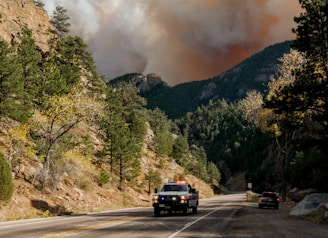Bugging out vs Bugging in?
Should you bug out? Or, bug in? Let's discuss!
5/5/20232 min read


Bugging In vs Bugging Out
As preppers, our top priority should be having a plan in place for different disaster scenarios. Among the popular plans are bugging in, or sheltering in place at your home, and bugging out, meaning evacuating to a secondary location. Each strategy has its pros and cons, as well as its time and place so you must evaluate your own situation to determine which option is best for your needs.
Bugging in is often the best first option for beginners, as you're already familiar with your home, you likely have supplies on hand, and you can barricade yourself in a defensive position; if the situation calls for such measures. However, your home could be compromised in some disasters such as flood, wind damage from hurricane/tornado, or wildfires. You are also limited to the supplies you have stored and, supplies will likely be limited, if not entirely unavailable in the area as a result of the same disaster that forced you to bug in. Intermediate preppers will likely have more robust supplies and tools in place to sustain themselves for longer periods.
Bugging out requires more advanced planning and preparation. Where will you go? What route will you take to get there? Are you taking supplies with you? Or, is there a cache of goods at your destination? However, bugging out gets you away from immediate dangers in your local vicinity. For some disasters like pandemics, bugging out to less populated regions may be safer. Intermediate preppers will likely have scouted their bug out routes and locations in advance and practiced evacuating.
Regardless of which strategy you prefer, the keys to survival are preparation and practice. Beginner preppers should start by assessing their household needs then building up their supplies and skills over time while developing a disaster plan to match those needs. preppers, of any level, should run drills to practice implementing their plans. No plan is perfect, so being able to adapt to changing situations is also important.
The debate over bugging in vs bugging out has been going on for years in the prepping community. A good practice would be to have a combination of the two strategies in your toolkit in case one becomes unviable. But with adequate preparation, either strategy can work. The most important thing is just to have a plan in place so you can act decisively when an emergency strikes.
